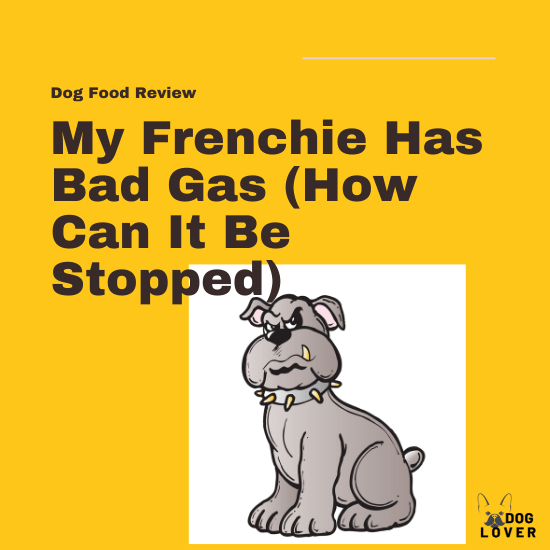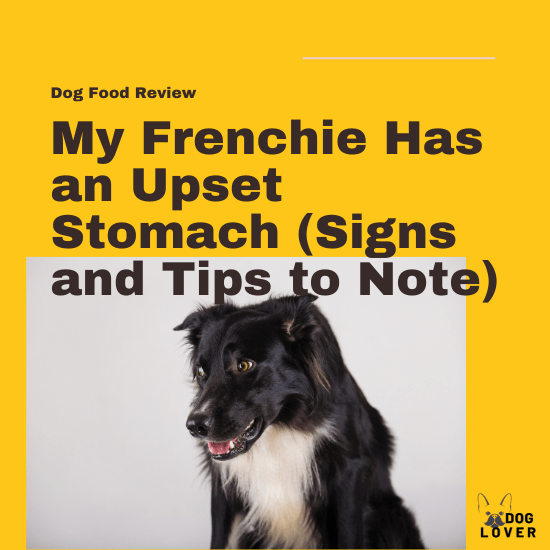My dog is constipating, and I don’t know how to fix it.
If you have ever experienced this, you know how uncomfortable constipation can be.
For a pet parent, nothing is worse than seeing your dog in pain.
But you don’t have to worry anymore.
Come with us as we dig more into canine constipation and how to deal with it.
Why is my dog constipating?
After food is digested and the end products of digestion are absorbed in the small intestine, waste items and undigested food are transported to the large intestine, otherwise called the colon. This is where water and electrolytes are reabsorbed. The water is absorbed in the colon while the waste is passed out as stool.
The transit of food and waste products through the digestive tract is aided by the regular movement of the gastrointestinal tract, known as peristalsis or peristaltic waves.
If something interferes with peristalsis, then the rate at which the fecal material moves down the colon will slow down, and your dog will become constipated.
What Causes Constipation in Dogs?
There are various reasons for constipation in dogs. The most common causes of constipation in dogs include:
- Diet: Sudden changes in diet or feeding your dog a diet lacking in dietary fiber can lead to constipation in dogs. Eating non-food items like grass, litter, toys, or hair, otherwise known as pica, also contributes to canine constipation.
- Insufficient exercise: A sedentary or inactive lifestyle slows down dogs’ bowel movement, resulting in constipation.
- Dehydration or electrolyte imbalances: Failure to keep your dog sufficiently hydrated by providing adequate drinking water can lead to dehydration.
- Age: Senior dogs are more prone to constipation compared to young dogs
- Side effects of medication: some drugs like antihistamines, diuretics, antacids, and some cancer drugs can cause constipation
- Stress, anxiety, and other psychological issues can make your dog hold it.
- Enlargement of the prostate gland
- Tumors in the digestive tract that cause gastrointestinal blockage
How Do You Know if Your Dog is Constipating?
Watch out for the following signs that can indicate constipation in your dog:
- Holding in poop: Failure to defecate for between 48-72 hours.
- Hard and compact stools that look like pebbles
- Lack of appetite: Constipated dogs may show decreased appetite as they may feel uneasy when eating
- Vomiting: Some dogs may vomit to remove the waste from their systems
- Restlessness: Your dog may engage in excessive circling motions or drag its bottom across the floor
- Pain and difficulty in pooping: Your dog will seem to strain or whine during defecation.
- Weight loss: This could be a result of decreased appetite
- Distended abdomen that appears larger than usual
- Producing small amounts of stool that may contain some water or mucus
- Whining, howling, or growling if the stomach or lower back is pressed
- Scooting or squatting frequently
- Bloody stools
- Taking longer than usual while pooping
- Weakness and lethargy
- Strange posture or yelping while pooping
Steps to Take When Your Dog is Constipating
Constipation is common in dogs. Doing the following may help improve the condition:
- Increase water intake: Since dehydration is a leading cause of constipation in dogs, keeping your dog adequately hydrated can help them feel better. Ensure that it has access to plenty of water available at all times. You can try keeping several bowls of water throughout the compound.
- Give enough exercises: Keeping your dog active and providing sufficient exercises, including taking long walks and engaging in playtime for a longer time, can help improve bowel movement for your dog.
- Add more fiber: If your dog’s constipation results from insufficient fiber in its diet, you can try feeding fiber-rich foods. You can add unsweetened wheat bran, pumpkin, and green leafy vegetables. Fiber will speed up your digestive process.
- Give natural probiotics: If your dog struggles with frequent constipation, providing natural probiotics can help improve its gut health. Probiotics help promote the growth of good bacteria in a dog’s gut. They also change the acidity of a dog’s digestive tract creating an ideal environment for digestion. Probiotics also prevent the growth of harmful bacteria in the gut improving digestion.
- Give canned food: Canned foods are rich in moisture which can help loosen up a dog’s stool. Feeding these to your dog can help improve their digestion and make the stools softer.
- Give canned pumpkin: Pure canned pumpkin puree is an excellent reliever for tummy woes. It’s high in fiber and moisture, aiding digestion and easing constipation. However, make sure you don’t add anything to the canned pumpkin. Be keen not to get pumpkin pie filling which contains added spices and sugar.
- Manually remove the hair: Occasionally look at your dog’s bottom. Dogs with long hair have a higher risk of developing mats of fur that can completely cover the anus and making it impossible for them to poop. If such happens, you can bathe your dog to soften any stool that may be lodged in its rectum’s hair and use electric clippers to remove the matted hair.
How to Treat a Constipating Dog
Most constipation cases are simple to resolve with some home remedies. This condition can be controlled through a balanced diet, access to plenty of fresh drinking water, and regular exercise.
The first and the most important step to take while treating canine constipation is to loosen or remove the impacted, hardened fecal matter. This can be achieved in various ways like administration of enemas and laxatives or medications. Some of the most common drugs include dioctyl sodium sulfosuccinate and lactulose. Supplements and probiotics can also be offered to manage constipation in dogs.
More severe constipation cases will require medical interventions and treatments such as:
- Laxative medication: These should be given strictly under the guidance of a vet
- Enemas: These should be performed by a vet only when necessary
- Enzyme-blocking medication
- Manual removal if the colon is impacted
- Low residue diet: This enables dogs to digest more nutrients and has less waste
- Nerve stimulating medications
- Surgery in rare or extreme cases, particularly megacolon
Constipation resulting from stress or other psychological/behavioral factors will require behavioral change through training or medication.
Home remedies for dog constipation olive oil
Olive oil acts as a natural laxative that can help dogs pass stool easily. Besides helping to moisten the stool, olive oil also lubricates the gastrointestinal tract. However, olive oil can cause diarrhea if used frequently. It should be used sparingly and infrequently as a last resort if your dog appears extremely uncomfortable.
Coconut oil for dog constipation
Coconut oil is also a good stool softener that can help ease your dog’s constipation. Adding it to your dog’s food can help lubricate its digestive system and aid the easy passage of stool. You only need to use a small dose. Like olive oil, coconut oil can cause diarrhea if consumed in excess.
Milk for dog constipation
Giving little cow or goat milk can get your dog pooping and relieve constipation. This works because many dogs are lactose intolerant. However, while this can get your dog pooping properly, it can also cause stomach issues, including diarrhea and vomiting.
How Vets Treat Dog Constipation
Most constipation cases are easily treated at home through dietary changes, more exercise, and sufficient hydration. However, some cases may require veterinary intervention. Vets can employ various treatment methods, including:
- Use of laxative suppositories and enemas: Vets may prescribe laxatives and enemas to help loosen hardened stools. These should be used under the strict guidance of vets.
- Manual removal of impacted or hardened feces in the intestines. This is done by administering warm saline enemas to soften the feces.
- He may give drugs to activate normal colon function or block certain enzymes’ production.
- Severe cases of constipation may require surgery. This can include colectomy, which involves the removal of some parts of the colon.
Complications of Untreated Constipation
If left untreated, constipation can progress to a more severe condition referred to as obstipation. This happens when the feces in the large intestines or colon become excessively dry and hard to move. In this case, the colon becomes clogged with stool as the dog cannot pass it, resulting in a condition known as megacolon.
This condition is marked by
- Excessively large and uncomfortable colon
- Lethargy
- Bloating
- Loss of appetite
- Vomiting
- Straining while defecating
This can also progress to more serious issues which may require medical intervention such as surgery or de-obstipation. This may prove very costly and put your dog’s health at higher risk.
How to make a dog poop quickly
There are various methods you can use to make a dog poop quickly:
- Manual stimulation: Get a pair of gloves and some lubricant. Gently but firmly rub the soft tissues around your dog’s anus until it’s done pooping.
- Ice-cube method: Ice cubes can get your dog pooping in no time. Slowly insert some ice cubes into your dog’s sphincter and keep it there for about 20 seconds. Because this will be uncomfortable, the dog will try to shove out the cubes by pushing, and in the process, some poop will also come out.
- Give canned pumpkin: This is loaded with fiber and water, facilitating digestion and smooth passing of the stool.
- Give canned food: This adds natural moisture to your dog’s body and helps make digestion and excretion easy and smooth.
What is the fastest way to relieve constipation in dogs?
For fast relief of constipation in your dog, you can give it a belly massage, canned pumpkin puree, lots of water, give probiotics, or feed canned food.
What can I give my constipated dog to make her poop?
To make your constipated dog poop, give her foods rich in fiber. These include pumpkin, spinach, broccoli, and fruits. You can also give her canned food with elevated moisture levels to regularize her system.
How can I stimulate my dog to poop?
You can stimulate your dog to poop by rubbing his belly gently, otherwise called a belly massage, plus some exercise to get things moving quickly.
How long can a dog safely go without pooping?
Normally, dogs can go for between 48-72 hours without pooping. However, you should immediately visit a vet if your dog does not poop in more than 3 days.
Does peanut butter make dogs poop?
Yes, peanut butter can make dogs poop. This is because it’s rich in fiber that can aid digestion if given in small amounts. However, too much may cause gastrointestinal upset, including diarrhea.
How can I prevent constipation in dogs?
You can prevent constipation by making dietary changes and going for foods that are rich in
fiber, ensuring your dog stays well hydrated and keeping it well exercised.
Over to You
Constipation, which occurs when a dog cannot pass stool, is very common in dogs. This condition may occur due to various reasons, including lack of dietary fiber in a dog’s food, failure
to keep your dog hydrated, effects of medications, stress, age, and an enlarged prostate, among other reasons. However, in some cases, constipation may indicate another underlying condition.
You can treat Constipation with some home remedies. Increasing the fiber content in your dog’s food, giving it more exercise, providing plenty of drinking water, and giving probiotics, olive, or coconut oil may be all you need to do to relieve your dog from constipation. However, remember to consult your vet in case of recurring or persistent constipation.


